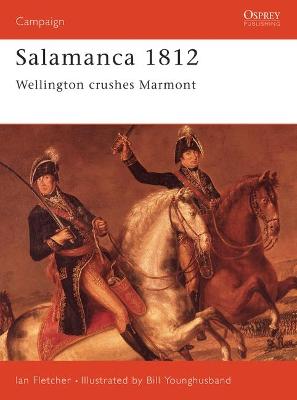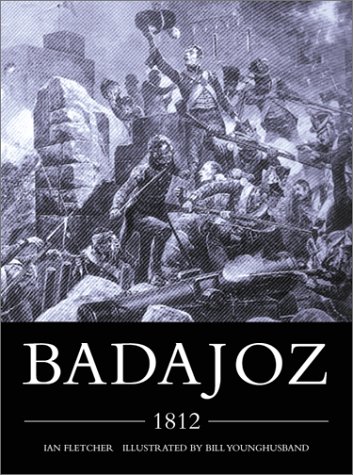Osprey Military Campaign S.
3 primary works
Book 48
Salamanca was the most decisive battle of the entire Peninsular War. Wellington smashed Marmont's French Army and his pursuit of its shattered remnants led to the famous cavalry charge of the King's German Legion at Garcia Hernandez. There would be two more years of sieges and hard fighting before the Iron Duke crossed the Pyrenees into France but from Salamanca the British and their Portuguese and Spanish allies always had the upper hand. Ian Fletcher examines this important battle in detail and also discusses the campaign which led up to it.
Book 59
Despite Wellington's success against Marmont's army at Salamanca in July, the year of 1812 ended in bitter disappointment for the British. After occupying Madrid Wellington's troops were repulsed at Burgos. The subsequent retreat in October and November 1812 was accompanied by all the miseries that had characterised Sir John Moore's famous retreat to Corunna in the winter of 1808-09. Those soldiers who endured both declared that the retreated from Burgos was by far the worse. Discipline collapsed and the starving soldiers looted what they could. With the army once again concentrated around Ciudad Rodrigo, Wellington issued his infamous memorandum concerning the conduct of his officers. By the spring of 1813 the army had recovered and been reinforced from England. On 20 May Wellington advanced once again into Spain. Turning in his saddle he exclaimed, 'Farewell Portugal, for I shall never see thee again'. He would never return. In a series of brilliant manoeuvres he threw the French onto the defensive on all fronts. His troops converged at Vittoria, 90,000 men and 90 guns attacking in 4 mutually supporting columns. Joseph's centre gave way and both his flanks were turned.
As Wellington's left column neared the Bayonne road, the French line of communication, Joseph's army broke and fled towards Pamplona. The French lost 7,000 men and 143 guns, while Joseph's treasury of $5 million and huge amounts of loot were taken. Any hopes the French had of maintaining their position in the Peninsular were crushed forever. Napoleon replaced Joseph with Marshal Soult but he could do little. On 7 October 1813 the British crossed the Bidassoa at Funterrabia and set foot on the 'sacred soil' of Napoleon's France. Ian Fletcher details the course of this campaign, the pinnacle of Wellington's achievement in the Peninsular, from the initial invasion in May to the final crushing victory at Vittoria and the advance into France
As Wellington's left column neared the Bayonne road, the French line of communication, Joseph's army broke and fled towards Pamplona. The French lost 7,000 men and 143 guns, while Joseph's treasury of $5 million and huge amounts of loot were taken. Any hopes the French had of maintaining their position in the Peninsular were crushed forever. Napoleon replaced Joseph with Marshal Soult but he could do little. On 7 October 1813 the British crossed the Bidassoa at Funterrabia and set foot on the 'sacred soil' of Napoleon's France. Ian Fletcher details the course of this campaign, the pinnacle of Wellington's achievement in the Peninsular, from the initial invasion in May to the final crushing victory at Vittoria and the advance into France
Book 65
The peninsular war; the opposing commanders; the opposing armies; siege warfare; the siege of Cuidad Rodrigo; the march South; Badajoz - the town; the besieged and the besiegers; the siege of Badajoz; the assault; the sacking of Badajoz; aftermath; Cuidad Rodrigo and Badajoz today.


